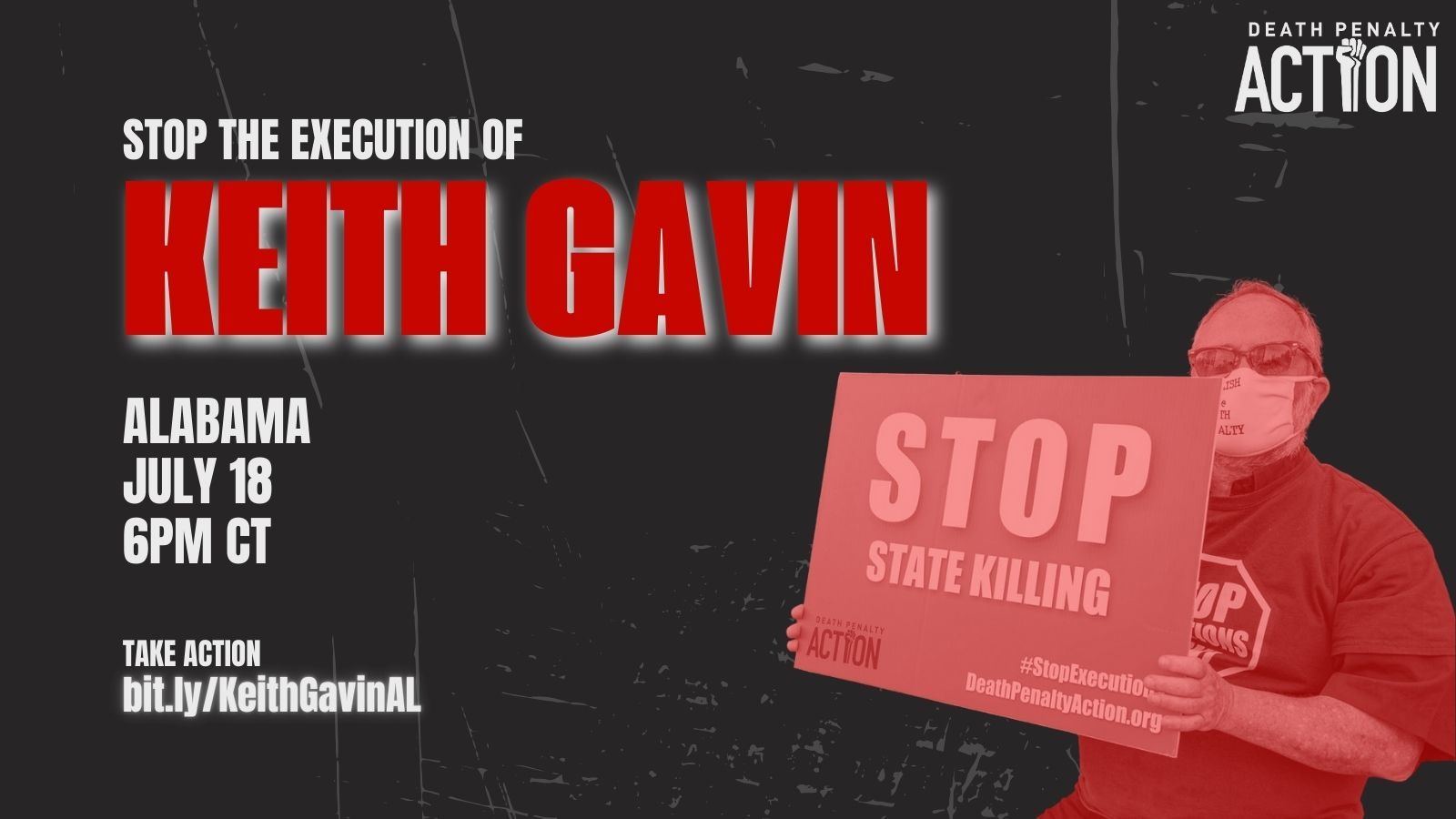ACTION ALERT - Stop the Execution of Keith Gavin
Case highlights the unjust application of the death penalty in Alabama

The State of Alabama plans to put Keith Gavin to death on July 18, the state’s third execution date so far this year, despite constitutional flaws that undermine the reliability of his sentence. Gavin was convicted of capital murder in the shooting death of a delivery driver and sentenced to death in 1999 after his appointed lawyers presented virtually nothing in mitigation at the penalty phase.
A federal court found in 2020 that Gavin’s lawyers were ineffective in violation of Gavin’s right to counsel and held that the constitution requires a new sentencing trial, but the decision was reversed on appeal.
The Constitution guarantees effective assistance of counsel, which means that defense lawyers representing a person facing the death penalty are expected to investigate and present evidence demonstrating why the jury should reject the death penalty and impose a life sentence. There was indeed compelling evidence about Gavin’s life that could have persuaded the jury to choose life imprisonment without parole in his case.
But Gavin’s jury never heard this evidence because, as the federal district court found, his lawyers failed to do the investigation and preparation that the constitution requires. As Gavin’s mother lamented, “her son had no money to retain a ‘real attorney.’” Instead, he was appointed counsel who, the federal court found, “did not conduct an adequate background investigation, did not pursue all reasonably available mitigating evidence, and did not make a reasonable effort to present the mitigating evidence they had.”
During the sentencing phase, Gavin’s defense called only two witnesses: a Jehovah’s Witness minister and Gavin’s mother. The lawyer mispronounced the minister’s name and had only spoken to him briefly. The minister provided damaging testimony, saying Gavin blamed others, even God, and suggested mercy might override justice. Gavin’s mother testified without preparation, sharing her hopes for her son’s potential to help others. The jury deliberated for 75 minutes before recommending the death penalty by a 10-2 vote, which the judge accepted in January 2000.
In nearly every other state, the jury’s non-unanimous verdict at sentencing would bar Gavin’s execution.
Gavin’s unreliable death sentence bears the hallmarks of the exceptionally flawed death penalty system in Alabama. Even among death penalty states, Alabama stands out for its failure to provide adequate counsel to people facing the death penalty. Compensation rates for capital trial attorneys are extremely low, preventing qualified lawyers from providing adequate representation, and there is no statewide public defender system. Alabama’s failure to provide constitutionally adequate legal representation for people facing the death penalty is a main reason why the state consistently ranks among the nation’s highest per capita death sentencing and execution rates. Alabama also stands out as the state with the worst record of failed and botched executions after its torturous multi-hour execution of Joe James and its failed attempts to execute Alan Miller and Kenny Smith in 2022.
Another exception highlighting the unjust application of the death penalty in Alabama is that is that the state allows death sentences to be imposed without unanimous agreement from all 12 jurors. This outlier practice is prohibited in almost every other state. Until Florida changed its law last year, Alabama was the only state that allowed a person to be condemned to death without a unanimous jury vote.
You can add your name to the petition asking Alabama Governor Kay Ivey (R) to stop the execution of Keith Gavin, and further, to delay all executions in Alabama to allow for a thorough study of its capital punishment process and consider the serious objections raised as to how the state administers the death penalty. --->>> Stop the Execution of Keith Gavin in Alabama










